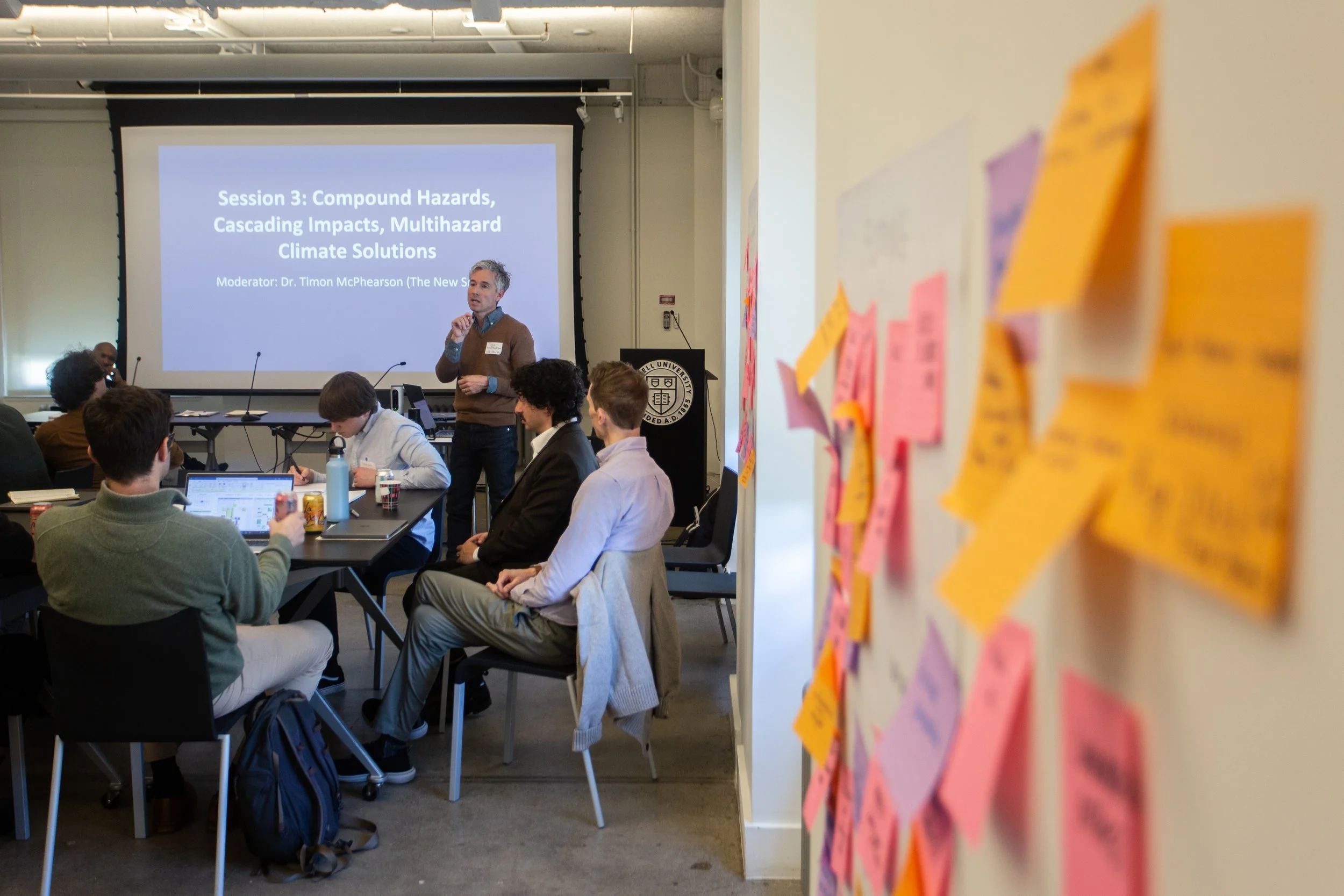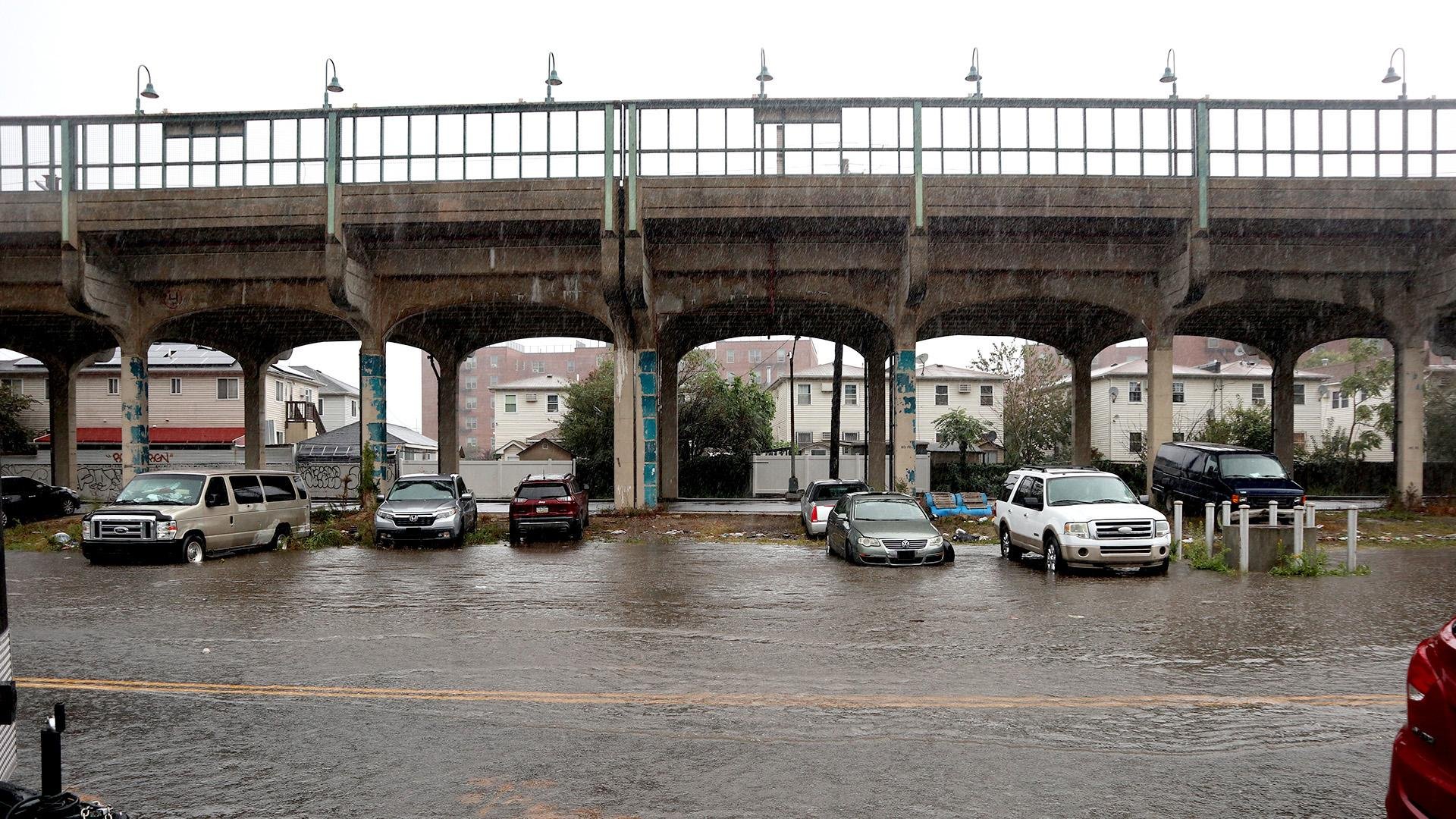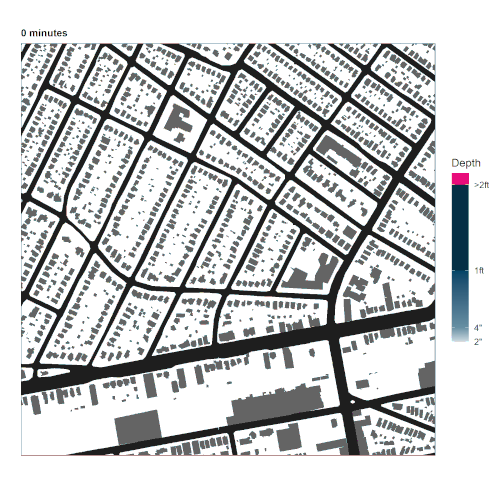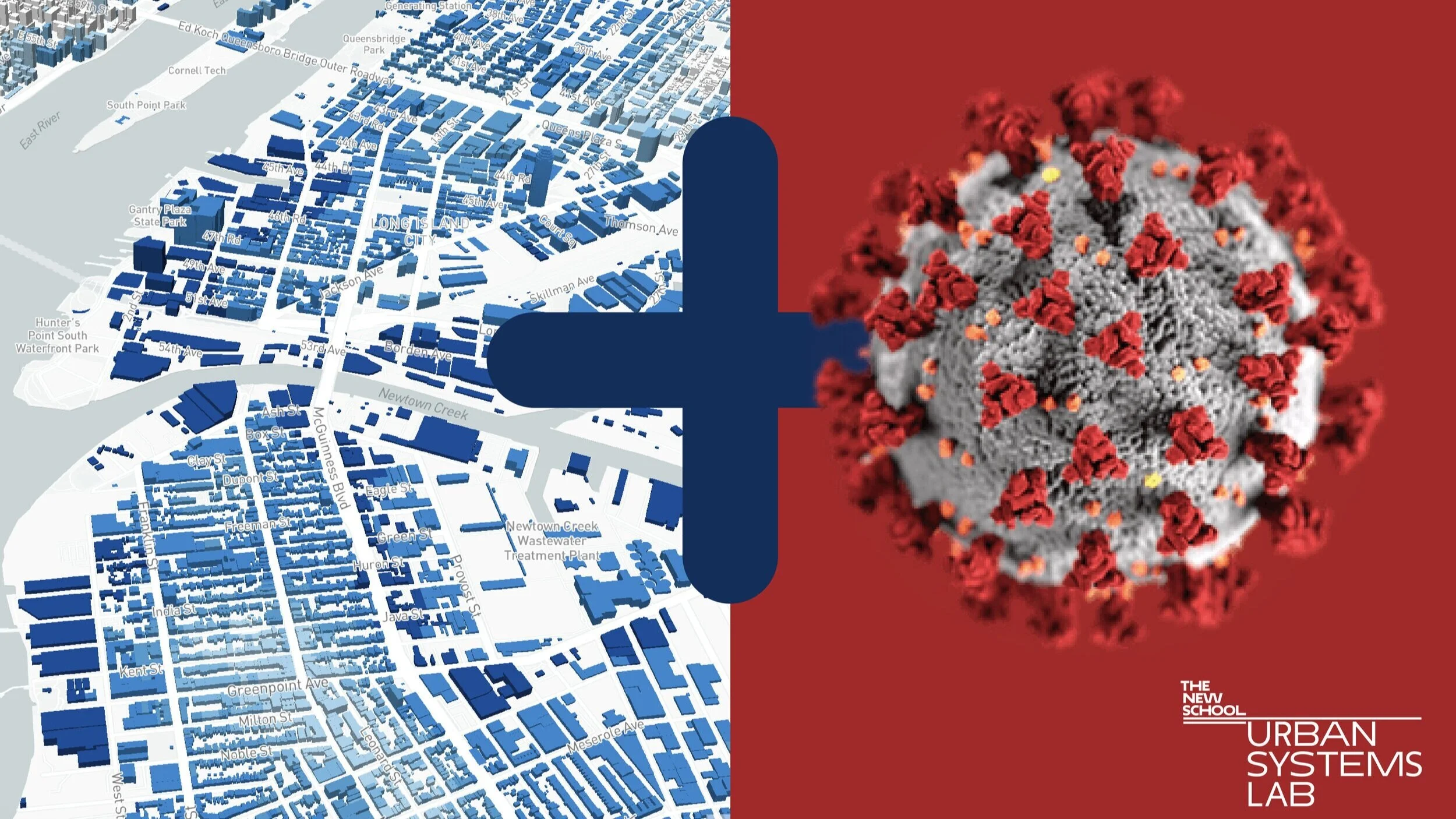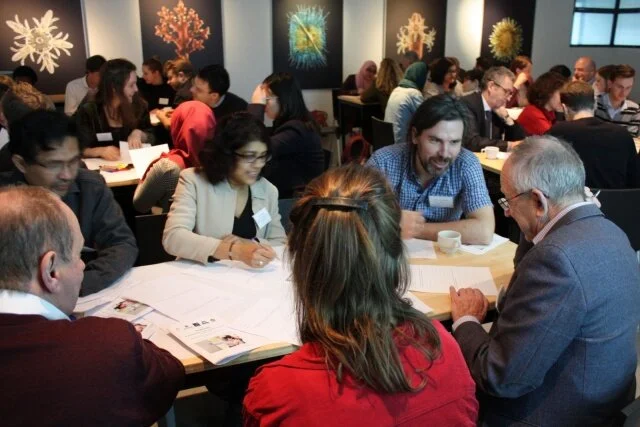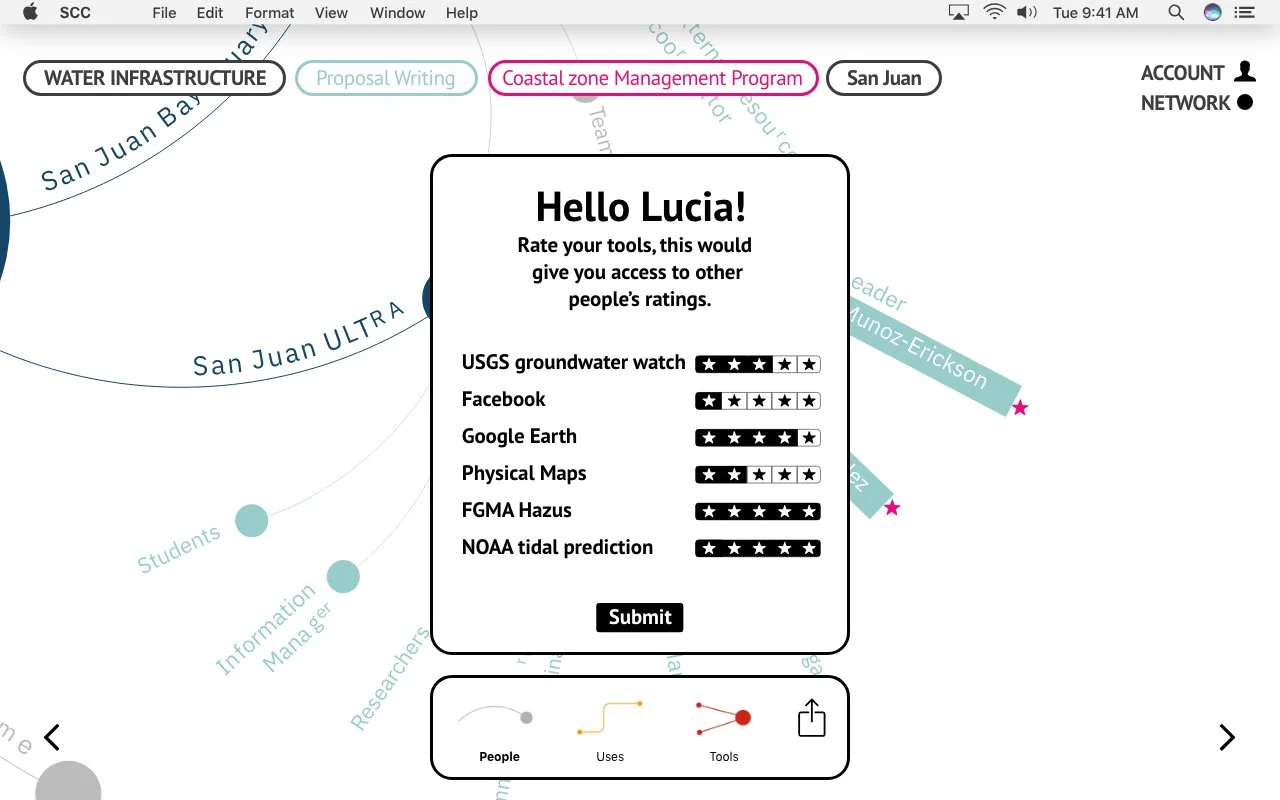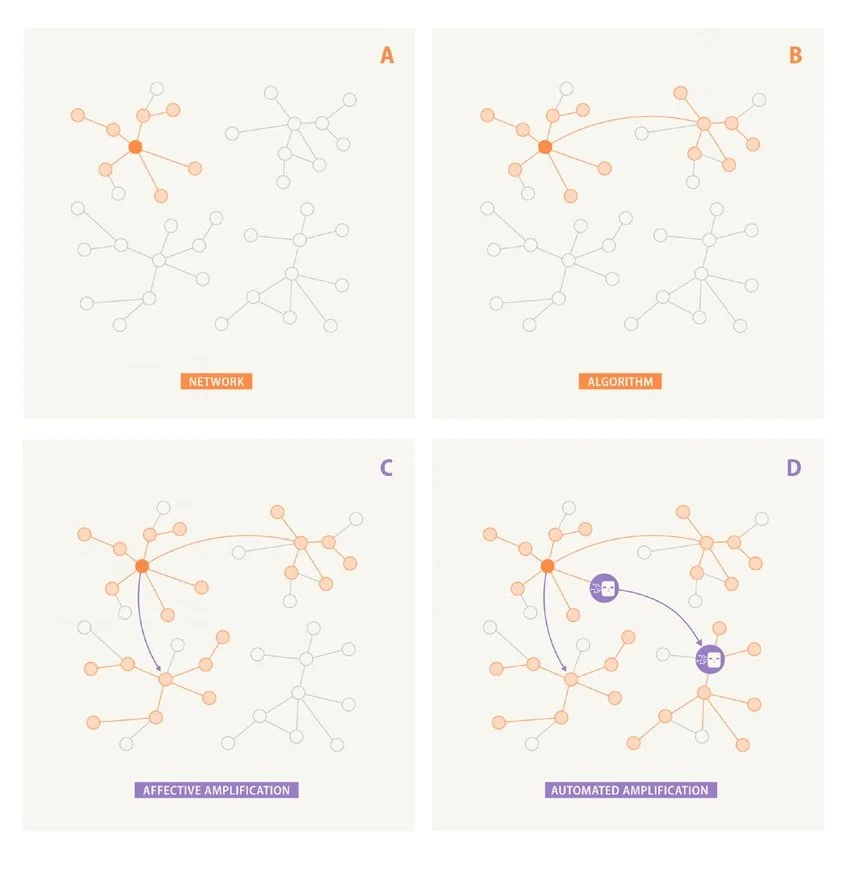The USL is co-leading a National Science Foundation planning effort as part of the Catalyzing Human-Centered Solutions Through Research and Innovation in Science, the Environment and Society (CRISES program). The team is developing a plan for a new Civic-Led Urban Adaptation Research Center (CIVIC-UARC), which will foster new collaborations between an interdisciplinary team of urban experts and diverse institutions, work closely with civil society and public sector stakeholders, and use New York City as an urban laboratory. Our objective is to develop a model for coproduction of knowledge and solutions to address climate risks in cities, with special attention to environmental justice concerns.The work of the Center will train the next generation of climate adaptation scientists and scholars, build climate resilience capacities of local partners, and be a guide for other cities in the U.S. and around the world.
The Environmental Justice of Urban Flood Risk and Green Infrastructure Solutions project aims to better understand the environmental justice impacts of climate change related flooding on minority and low-income communities and assess social equity in green infrastructure planning for reducing urban flood risks. Through data visualization and modeling future flood risk, the project will address two central questions concerning flood risk, and green infrastructure development: (1) Who is more exposed to flooding? And (2) who benefits most by current green infrastructure plans or developments?
Recent Work and Products
Climate Ready Uptown Plan
The Climate Ready Uptown Plan (CRUP) is a physical pamphlet that helps Northern Manhattan community members understand their individual risk to climate related disasters – specifically extreme heat, coastal and stormwater (pulluvial) flooding – and provides pertinent information to help prepare themselves and their families. Designed by WE ACT for Environmental Justice in partnership with East Harlem COAD, Harlem Emergency Network and Urban Systems Lab, the Plan is tailored to residents of Northern Manhattan to better understand their flood risk. From the onset, CRUP was designed with community at the forefront. WE ACT’s Climate Justice Working Group helped with the initial planning, research and layout of the tool, and scenario planning meetings as well as focus groups with Northern Manhattan residents helped WE ACT refine the messaging and language included in the plan to make it as effective and relatable as possible.
Saw Mill River Watershed Flood Vulnerability Modeling Project
This effort was a collaboration with Groundwork Hudson Valley and the Saw Mill River Coalition to assses flood exposure along the Saw Mill River Watershed near Yonkers, NY. The effort involved an extensive hydrological modeling assessment to address a key priority of the Coalition’s 5-year Watershed Action Plan, developed in 2020 with support from the New York State Hudson River Estuary Program (HREP). This project aims to help the watershed community prepare for the increasing risks of flooding and extreme weather driven by a warming climate.
Milwaukee Flood Health Vulnerability Assessment
The Milwaukee Flood and Health Vulnerability Assessment (FHVA) is a collaborative effort between Groundwork Milwaukee and The New School’s Urban Systems Lab to develop an assessment tool which identifies communities across Milwaukee where exposure to urban flooding and pre-existing health, housing and socioeconomic conditions intersect and create disproportionate vulnerabilities to the impacts caused by extreme flooding.
Project Team: Pablo Herreros Cantis, Timon McPhearson, Chris Kennedy, Anna Kramer, Elizabeth Cook, Claudia Tomateo
Project Team: Timon McPhearson, Luis Ortiz, Ahmed Mustafa, Chris Kennedy, Claudia Tomateo, Daniel Sauter, Z. Grabowski, Pablo Herreros-Cantis, Veronica Olivotto
The USL’s Covid-19 related research aims to integrate survey, social media, building infrastructure, energy demand and use, and social-demographic data with simulations of potential emerging weather-related extremes to examine interdependent social vulnerability to COVID-19 and weather in New York City (NYC).
Project themes
Attendees at the project launch discuss the challenges and opportunities in planning for climate change. Photo: C. Ballard
Project Team: Timon McPhearson, Rohan Bhargava
In September 2019, the Climate Change, Agriculture and Food Security (CCAFS) and International Fund for Agricultural Development (IFAD) organized a 5-day workshop and learning journey for IFAD staff and partners. The objective of the workshop and learning journey was to introduce attendees to transformational approaches to mainstreaming climate change, nutrition, gender, and youth. The fifth day of the event involved the analyzing and discussion of transformation agendas at the country and project levels under future socio-economic and climate scenarios. Junior Researcher Rohan Bhargava led the development of these scenarios and co-led the one-day workshop.
Project theme
Project Team: Timon McPhearson, Z Grabowski, Pauline Munga
Green infrastructure (GI) is usually assumed to be a benefit everywhere and for everybody in a city. Is this assumption correct? Or are there differences in where and who is served or burdened by GI? This project is a collaboration with the Cary Institute examining green infrastructure plans in 20 U.S. cities with the goal of understanding how best to improve the equity of green infrastructure through policy and practice. The project includes an interactive website and toolkit for city planners, researchers and others to use in considering the equity dimensions of future green infrastructure planning.
Project themes
Project Team: Erik Andersson, Timon McPhearson, Daniel Sauter
SMARTer Greener Cities aims to develop and test novel tools and processes for explicitly converging social, ecological, and technological approaches. The convergence of these approaches will promote resilient and equitable urban futures in Helsinki, Copenhagen, and Stockholm, and generate new opportunities for transformative change and increasing resilience to extreme events in other Nordic cities. The comprehensive integration of emerging science and practice connected to each of the three couplings (social-ecological (S-E), ecological-technological (E-T), and social-technological (S-T)) into a combined SETS framework is essential for the development of “smarter” (through systems) solutions for resilience and equity. We believe, despite the challenge of systems oriented research and practice, that we must cut across silos in disciplines, approaches, and knowledge systems by bringing technology, people, and nature together.
PROJECT THemes
Project Team: Timon McPhearson
The Seeds of Good Anthropocenes project is a collaboration with the Stockholm Resilience Centre funded initially through Future Earth. Our aim is to counterbalance dystopian visions of the future that may be inhibiting the ability to cooperate effectively on problem solving.
USL is working with project participants to solicit, explore, and develop a suite of alternative, plausible “good anthropocenes” — future scenarios that are socially and environmentally desirable, just, and sustainable.
Project themes
Project Team: Timon McPhearson, Daniel Sauter, Claudia Tomateo
Building Resilient Coastal Cities through Smart and Connected Communities was a project to develop a data visualization and user interface design for web platform. This work involved mapping use cases, tools classification and social networks based on different stakeholders’ data from San Juan, Baltimore and Miami workshops. The product was represented in a series of interface workflow in form of storyboard (Screen designs), low fidelity wireframes and animated video mockups of platform usage. The tool is used as a “network of networks”, to help stakeholders map current projects and tools being used in the field and to discourage the duplication of efforts and co-production of knowledge.
project themes
AI, People & Planet is a research initiative hosted by the Beijer Institute of Ecological Economics at the Royal Swedish Academy of Sciences, the Princeton Institute for International Regional and Studies at Princeton University, The Urban Systems Lab at The New School and, the Stockholm Resilience Centre at Stockholm University.
The USL is exploring advances in urban data science, availability of real-time data, advanced spatial modeling, machine learning, cloud-based GPU processing, and cutting-edge visualization of urban social and infrastructure systems to ask new questions to be asked about key climate change risks and opportunities to advance adaptation in cities. Our interdisciplinary team includes scientists, planners, NGOs, industry, and other stakeholders working around the world to plan and envision positive urban futures, assessing heat and flood risk, and analyzing nature-based solutions and other strategies for building SETS resilience in cities.
